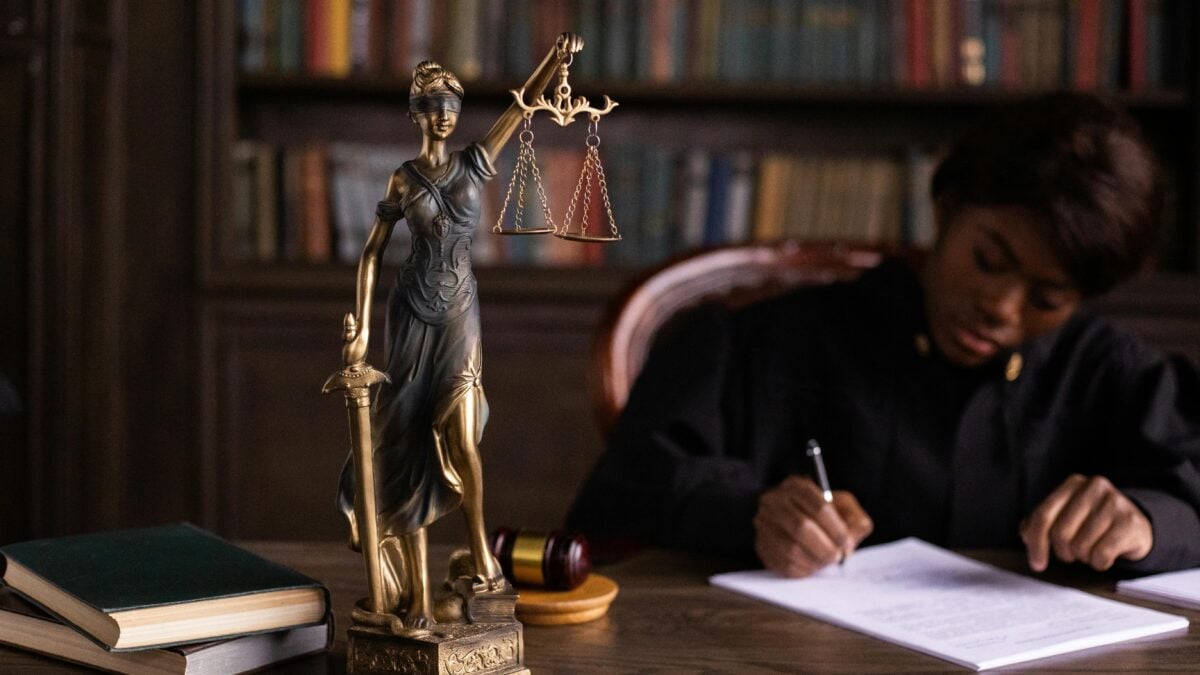
Why Merchants are Placed on Mastercard’s MATCH System Incorrectly
September 12, 2024
Top Defences Against FTC Violations: What You Need to Know
June 6, 2025When your business faces scrutiny or action from the Federal Trade Commission (FTC), the potential fallout extends far beyond legal and financial implications. One of the most significant consequences is the impact on your brand’s reputation. Negative publicity surrounding FTC investigations or enforcement actions can quickly erode trust with your customers, stakeholders, and the public at large.
To navigate these turbulent waters, understanding the interplay between FTC actions and your reputation is crucial. Partnering with an experienced FTC defence lawyer and crafting an effective crisis communication strategy can help you mitigate damage, protect your brand, and rebuild trust.
The Link Between FTC Actions and Reputational Damage
The FTC’s role is to protect consumers from deceptive, unfair, or fraudulent practices. When businesses are accused of violating these regulations, the FTC’s actions often attract significant media attention. Public perception quickly associates such accusations with unethical behaviour, even before a resolution is reached.
Key factors that influence reputational damage include:
- Nature of the Violation: Allegations related to false advertising, data breaches, or consumer exploitation are particularly damaging to a company’s credibility. Industry Sensitivity: In industries like healthcare, finance, or technology, where consumer trust is paramount, even minor violations can have outsized consequences.
- Media Amplification: News of FTC actions often spreads rapidly through social and traditional media, creating a public relations challenge for businesses.
- Consumer Trust Erosion: Negative publicity can lead customers to question your business’s integrity, resulting in lost sales and decreased loyalty.
The Role of an FTC Defence Lawyer in Protecting Your Reputation
Hiring a knowledgeable FTC defence lawyer is one of the most critical steps you can take to safeguard your reputation. Here’s how legal expertise helps:
1. Proactive Legal Guidance
An FTC attorney can help you understand the specific allegations and guide you on how to respond appropriately. Their expertise ensures that you avoid making public statements or decisions that could inadvertently worsen the situation.
2. Mitigating the Scope of Penalties
Working with an FTC law firm increases your chances of reducing penalties and resolving cases favourably. Minimizing fines and operational restrictions can help rebuild confidence among stakeholders.
3. Managing Confidentiality
An experienced FTC lawyer understands the importance of managing sensitive information. They work to prevent unnecessary disclosures that could harm your business’s reputation further.
Visit us FTC Defense Lawyer page to learn how our team at TFM Law Firm can provide expert legal representation to protect your business.
Crafting a Crisis Communication Strategy
While legal defence is essential, managing public perception requires an effective crisis communication strategy. Below are the steps businesses should take to address reputational challenges arising from FTC actions.
Step 1: Acknowledge the Issue Responsibly
Transparency is key during a crisis, but it’s important to strike the right balance. Avoid making overly defensive or dismissive statements. Instead:
- Acknowledge the concerns: Show that you take the matter seriously and value consumer trust.
- Avoid admitting guilt prematurely: Stick to facts and refrain from making statements that could harm your legal defence.
Step 2: Work with Legal and PR Teams
Coordinate closely with your FTC attorney and public relations professionals to ensure consistent messaging. They can help craft responses that address public concerns without compromising your legal strategy.
Step 3: Communicate With Stakeholders
Your stakeholders—employees, partners, and investors—will have questions about how the situation impacts them. Keep them informed by:
- Hosting internal meetings to explain the steps being taken.
- Providing regular updates on progress toward resolving the issue.
- Emphasizing your commitment to transparency and compliance.
Step 4: Engage With Customers
Customers are often the most affected group in cases of FTC actions. Address their concerns directly by:
- Publishing FAQs addressing the issue.
- Providing reassurance about steps you’re taking to improve compliance.
- Offering compensation or corrective measures where applicable.
Step 5: Focus on Positive Actions
Shift the narrative by highlighting proactive measures you’re taking to address the problem. Examples include:
- Announcing new compliance programs.
- Sharing details of partnerships with external auditors or consultants.
- Emphasizing your commitment to ethical practices moving forward.
Long-Term Reputation Management
Rebuilding your reputation after an FTC action requires consistent effort. Below are some strategies to help your business recover in the long term.
1. Implement Comprehensive Compliance Programs
One of the most effective ways to prevent future violations is to create and enforce robust compliance programs. This demonstrates to consumers and stakeholders that your business is serious about adhering to regulations.
2. Seek Third-Party Endorsements
Partnering with independent organizations or obtaining certifications can help restore credibility. For example, undergoing voluntary audits or earning certifications in data security or ethical marketing practices can reassure customers.
3. Leverage Positive Publicity
Once the issue is resolved, focus on generating positive publicity to overshadow the negative. Share stories about community engagement, customer success, or innovative initiatives to rebuild public trust.
4. Monitor Public Sentiment
Use tools to track media coverage and social media discussions about your business. By keeping a pulse on public sentiment, you can identify emerging concerns and address them proactively.
FAQs About FTC Actions and Reputation Management
Q1: How does an FTC investigation affect my business’s reputation?
A1: FTC investigations can lead to negative publicity, eroding consumer trust and damaging your brand’s credibility. Media attention often amplifies the issue, making it essential to respond strategically.
Q2: Why should I hire an FTC defence lawyer?
A2: An FTC defence lawyer helps navigate the legal complexities of FTC actions, mitigates penalties, and protects your business’s reputation. Their expertise ensures that your response aligns with both legal and public relations goals.
Q3: Can I recover my reputation after an FTC violation?
A3: Yes, businesses can recover through consistent efforts such as implementing compliance programs, leveraging positive publicity, and maintaining transparency with stakeholders.
Q4: How do I communicate with customers during an FTC investigation?
A4: Be transparent and address their concerns directly. Publish FAQs, provide regular updates, and demonstrate a commitment to resolving the issue. Avoid making statements that could worsen the situation legally or publicly.
Q5: What are the long-term consequences of not addressing reputational damage?
A5: Ignoring reputational damage can result in lost customers, reduced investor confidence, and difficulty attracting new business opportunities. Proactively managing your reputation is essential to sustaining growth and success.
Conclusion
FTC actions can pose significant challenges for businesses, especially when it comes to protecting their reputation. By hiring an experienced FTC lawyer and crafting a thoughtful crisis communication strategy, you can navigate these challenges effectively.
At TFM Law Firm, our team of dedicated FTC attorneys specializes in helping businesses manage legal and reputational risks associated with FTC actions. Visit us FTC Defense Lawyer page to learn more about how we can assist you in safeguarding your business.
Take the first step toward protecting your reputation today—because your business deserves the best defence.





